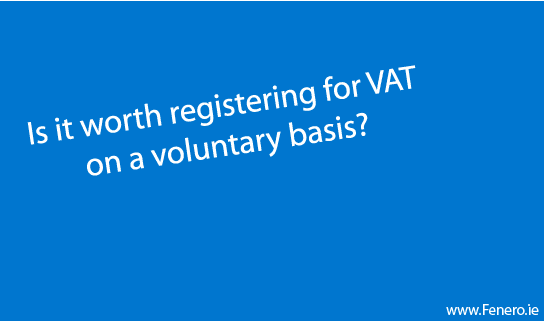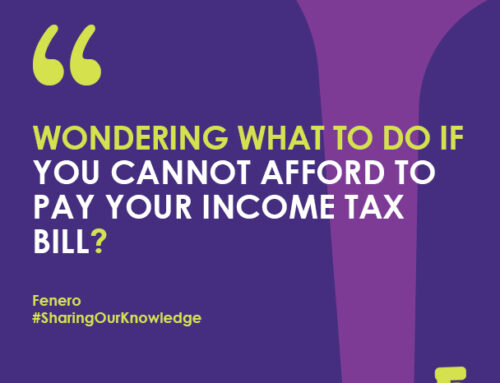As most people are aware, registering for VAT becomes mandatory at certain business activity levels. For example, you are required to register for VAT when turnover reaches:
a) €37,500 if you are suplying services;
b) €37,500 if you are making mail-order or distance sales into Ireland;
c) €75,000 if you are supplying goods.
However, for small businesses and also for businesses in a startup period, the level of turnover may not reach the thresholds by which is becomes a requirement to register for VAT. However, it is still possible to register for VAT voluntarily.
What are the implications of registering for VAT?
You can reclaim the VAT on your expenses;
You must charge VAT on your sales;
You must prepare and submit VAT returns.
So is that good or bad?
The obvious upside of registering for VAT is that you can reclaim VAT on your expenses, thus making them cheaper.
The main downside is obviously that you must start to charge VAT on the sales that you make to your customers. However, what is key here is to establish some facts about your customer base. Are your customers mainly VAT registered businesses? Or non-VAT registered private individuals?
If your customers are mainly non-VAT registered private individuals, they cannot reclaim the cost of the VAT which you have charged them on your sale price. This means that your product or service becomes up to 23% more expensive for them to use. Therefore, you must either ask them to pay more for your product or services, or alternatively you have to reduce your price so that the cost is no more expensive to your customers, but in doing this, it means you are reducing your own profits. This can be a tough decision to make. Obviously you would would rather not reduce your own profits, and indeed doing so may not even be financial viable in some cases. Also, it is possible in this difficult economic climate that increasing your prices to customers could mean risking losing a portion of your customer base.
If however your customer base are primarily VAT registered businesses, you do not have any of these concerns. Your customers won’t be concerned that they are being charged VAT on your product or service as they will simply reclaim this amount from the Revenue, resulting in no additional cost to them.
How Do I Decide?
If your customers are mainly VAT registered businesses and if you are incurring VAT on a number of your business expenses, it generally makes sense to consider registering voluntarily for VAT. The only downside is the extra paperwork involved, but this should not cause major difficulties and should also be worthwhile doing given the reduction in your costs that will follow.
If your customers are mainly non VAT registered businesses, you will need to consider the pro’s and con’s and establish which route will be more financially benefiical to you. If in any doubt, a chat with Fenero should help you to determine the best course of action for your business.






